Thursday Feb 29, 2024, performance reviewed by Leigh Donlan
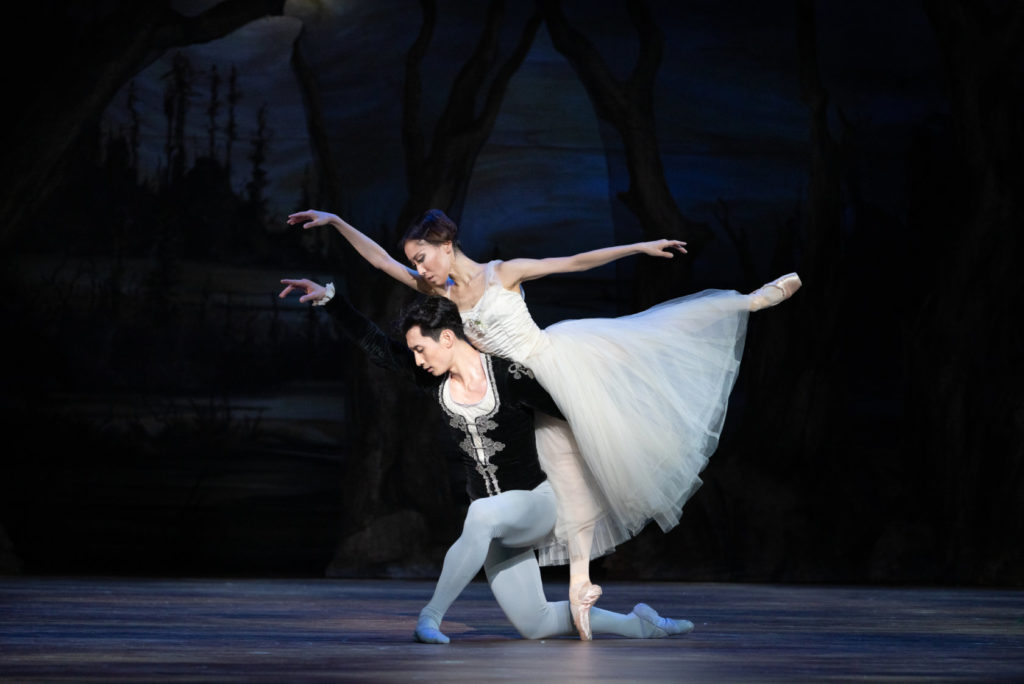
Philadelphia Ballet opened Giselle on Thursday evening at the historic Academy of Music. It was a charming mix of the earthly delights and pitfalls of Act I, and the supernatural, prototypical ballet blanc of Act II, with Angel Corella staying faithful to the Coralli-Perrot-Petipa choreographic tradition.
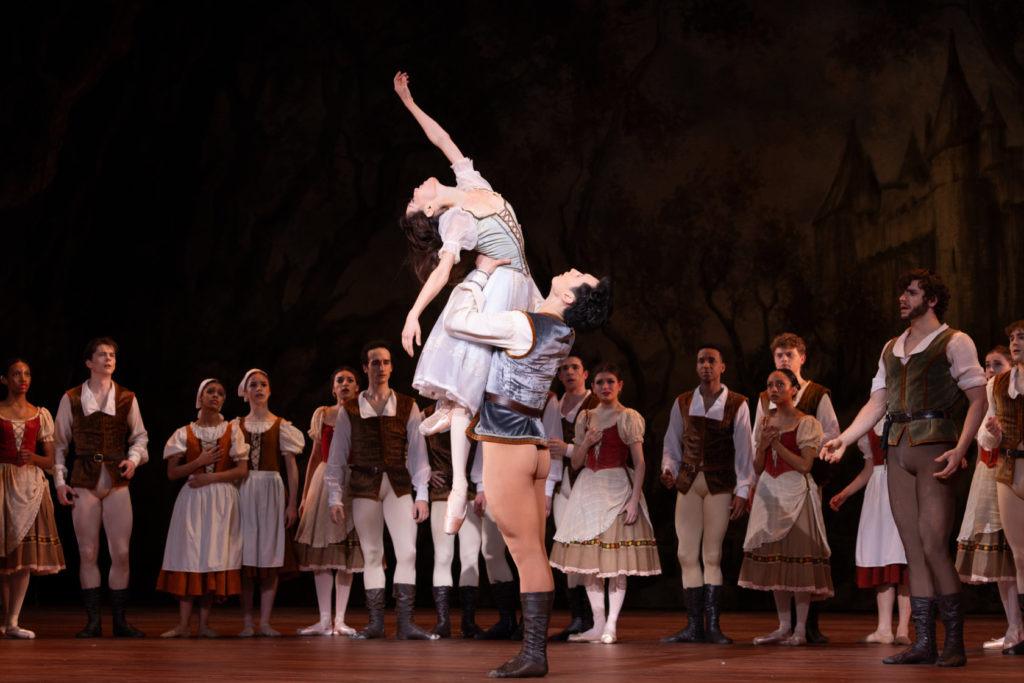
Act I commences in a Rhineland village during a fall harvest celebration, where the sweet though naïve Giselle (Yuka Iseda) falls for a man of many red flags, Count Albrecht (Zecheng Liang). Albrecht decides to conceal his noble status and act as a villager in order to pursue the beautiful peasant girl. He also chooses not to tell Giselle that he is already betrothed to noblewoman Bathilde (Jacqueline Callahan). Village gamekeeper Hilarion (Austin Eyler), who also loves Giselle, discovers Albrecht’s true identity and tries to warn the weak-hearted Giselle, but she refuses to believe him. What starts as a romantic conquest or game turns lethal. Iseda and Liang are a power couple with an undeniable chemistry. Iseda endears with her levity and inherent grace, while Liang impresses with his strength and bravado.
Corella chose the death by weak-heartedness narrative, rather than the original suicide, and Iseda gives a discerning and convincing interpretation. She takes her time and allows the audience to acclimate to her unfolding madness, delivering a world-class performance the entire evening with her intelligent breadth of emotion. And Jessica Kilpatrick as Berthe, is a persuasive bereaved mother.
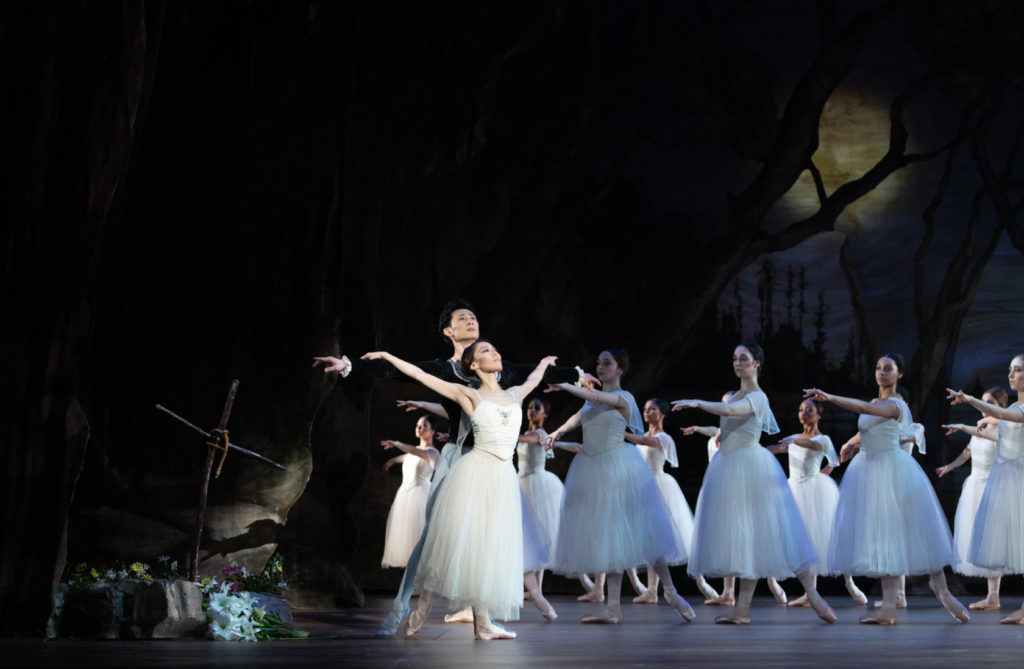
Act II is where the magic lies. Giselle is initiated into Myrtha’s murderous coven of Wilis, but not before she can liberate Albrecht from impending death, and attempt to elevate her own soul’s fate by her altruistic choices.
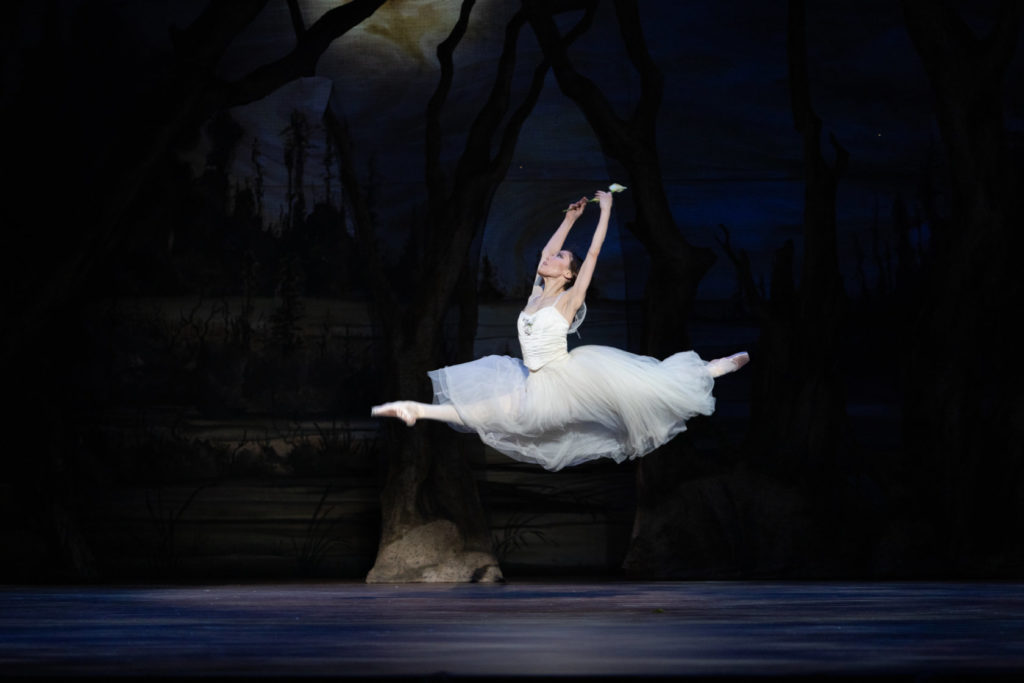
Dayesi Torriente as Myrtha, Queen of the Wilis, is unflinching, impenetrable in her dominion, and the Wilis are entrancing with their ritualistic arabesques voyagés and the crystalized quickness of their bourrées that appear to continuously suspend their motionless bodies above the stage. A palpable energy is raised throughout the theatre. There will be no mercy for any man who strays into their forest. Hilarion doesn’t stand a chance once the Wilis surround him in their circular energetic vortex, suck the life force out of him and cast him into the lake to drown.
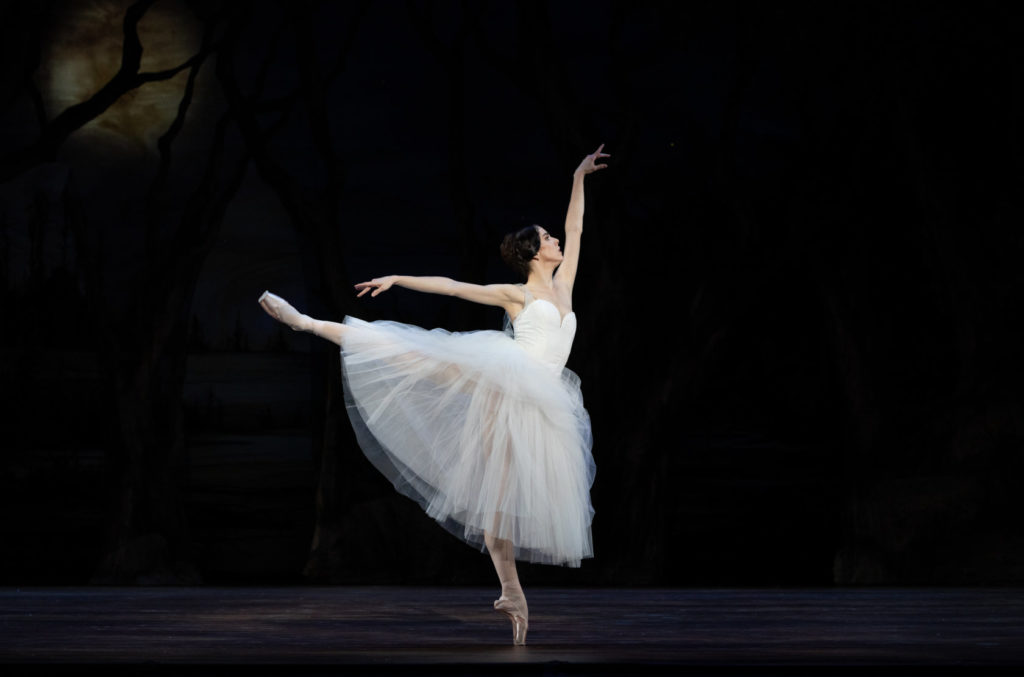
Though drenched in the mystic atmosphere envisioned by 19th century poet and librettist Théophile Gautier, in which female characters were imbued with certain magical capabilities, Act II remains powerful today as it begs the question of ethical practices and spiritual laws. Yes, Myrtha represents Justice, but does she cross the line by forcing her will upon the free will of innocent men? The Wilis target any and all men who trespass onto their woodland turf. At what point is an indiscriminate killing spree too much, even if one sympathizes with their motivations? Furthermore, the Wilis are victims themselves, for they are snatched up by Myrtha – gatekeeper of fresh, lost maiden souls – before they can figure out that they are in fact deceased but still accountable for their actions in the spirit realm. Somehow, our heroine Giselle knows this, which is why she is able to free Albrecht, though by Corella’s choice, she ultimately returns to her unsanctified gravesite indicating her submission to Myrtha and completing her initiation into the Wilis. Other versions have Giselle ascend into the heavens, freed of the dark forces of Myrtha’s agenda of wrath. It’s hard to believe that, despite the power of her love and forgiveness of Albrecht, she is still relegated to the Wilis’ fate of an indefinite purgatory.
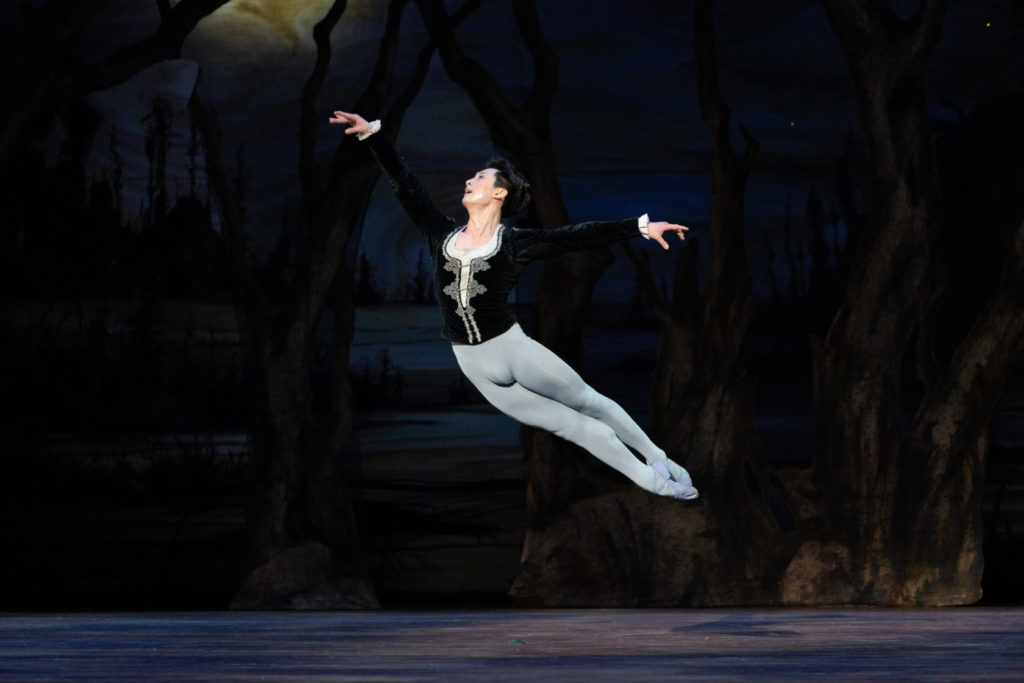
Corella’s Giselle remains a timeless classic in this triumphant production, with glorious support from the Philadelphia Ballet Orchestra led by Beatrice Jona Affron. Seasoned veterans Iseda, Liang and Torriente were outstanding on opening night, and the corps was cohesive and solid – a promising beginning for this run that continues through March 10th with five more casts.




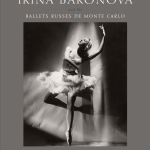


Good point at the end of this review about justice served (or not) at the end of Giselle. I have never seen a Giselle who escapes the Wilis (that’d be awesome.) But I’ve heard of a version that presents the story as told by an aging Albrecht and at the end he asks the Wilis to kill him so he can go be with Giselle. Which I have three questions about:
(1) Why does he wait till he’s old to figure out this is what he wants?
(2) If Giselle is trapped forever in this purgatory in the woods, would the Wilis want him hanging around?
(3) Why does the man get to tell the story?
I guess an ending in which the hero or heroine does not get “justice” (however you define justice) can be more interesting because it gives the audience something to argue about when it’s over. But honestly, I hope choreographers go on making Giselles with different endings so we don’t feel like we are just stuck having to honor old traditions which is such a problem with ballet. (And not just the same 10 names, mostly European males and former Forsythe dancers, who seem to get all the gigs.)
Lisa,
Excellent questions! Very thought provoking. I’ve read about this ballet but haven’t seen it myself. Some thoughts:
1. Now that he’s facing his own natural mortality of old age, does he fear death, and approaching atonement? Is he hoping Giselle will console and guide him in the process, given her expertise? Does he want her protection in the afterlife, as she provided for him on earth?
2. I don’t think he’d be welcome in Wilis’ realm. By original narrative standards, he’d be in violation of their rules and killed immediately. I don’t think an initiated Giselle could continue to save him.
3. Maybe the male perspective is the amends, an illustrated acknowledgement and reasoning of (his) trespasses?